After two months of traveling around Vietnam on a motorbike (with our beloved Km0 bike), it feels like the right time to reflect on our journey has come. Two months may sound like a short period, but it equates to 60 days on the road (over eight weeks), taking us from Hanoi to the Mekong Delta, through the northwest until reaching Sapa.
It seems like just yesterday that we asked for your help in naming the bike, and now we have quite a few kilometers behind us—over 3,500 to be exact. These miles have been filled with stories and encounters that have given us a unique view of Vietnam and made our journey unforgettable.
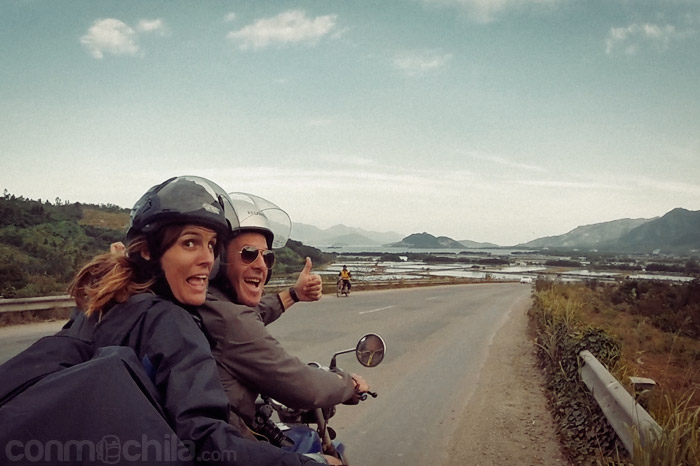
So, would we do it again? Throughout our trip, we’ve shared both the highlights and some of the low points with you. Not everything was smooth, and I’m certain not everyone would enjoy this mode of travel, I am absolutely sure. Want to know our final conclusion? Here’s our verdict, starting with the pros and cons.
When it comes to “good news or bad news first,” which one would you prefer? I’m one of those who always opts for the bad news first, so let’s start with the less pleasant aspects.
These are the things that soured our mood a few times or made us have moments of crisis and ask ourselves, “Why..?”
The hardest part of traveling by motorbike for us was, without question, the lack of comfort (and our bike was one of the most comfortable we tested).
The first couple of hours each day were bliss; you’re enjoying the scenery or fully engaged in navigating around some daredevil bikers. But after about two hours, the pain sets in.
We’ve had to take public transportation a few times, and while that’s not always a pleasant experience (like the overcrowded taxi brousse in Madagascar), nothing quite compares to the relentless ache in your rear end from constant compression on the bike seat. It’s something we won’t miss!
We wonder if seasoned bikers eventually build up some sort of resilience or maybe practice a “no pain” meditation technique. If there’s a secret trick, please share it!
Yes, the bustling, motorbike-filled streets and roads you’ve heard about really do define the country. I’m convinced that there’s nearly one motorbike per person here; otherwise, such numbers would be inexplicable.
And then there’s the chaos of driving here. You’ll encounter motorcyclists darting onto the road from paths you can’t see until you’re two meters away (without checking, of course, and often loaded to the brim with all sorts of goods).
There are also buses and trucks that barrel down the road as though they’re the only vehicles out there, and school kids on bikes who appear out of nowhere, riding two or three abreast and taking up half the road.
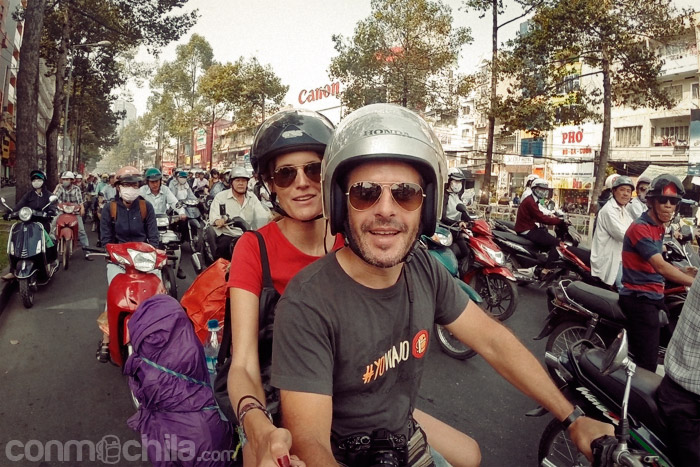
And then there are the animals, blissfully unaware of traffic dangers. Dogs sleep in the middle of the road, oblivious to the blaring horns. Cows cross wherever they please, and suicidal chickens dart right under your bike (and somehow come out unscathed—ask us how we know!).
A complete obstacle course.
If your motorbike experience is limited to commuting between home and work, you’ll need to level up before tackling the roads in Vietnam.
We’re not sure why Vietnam’s weather is so unpredictable, but over 60 days, we experienced what felt like all four seasons.
We began with a rainy autumn in the country’s northwest, forcing us to buy all kinds of waterproof gear. Soon, as the fog rolled in, it turned into a cold winter in Sapa.
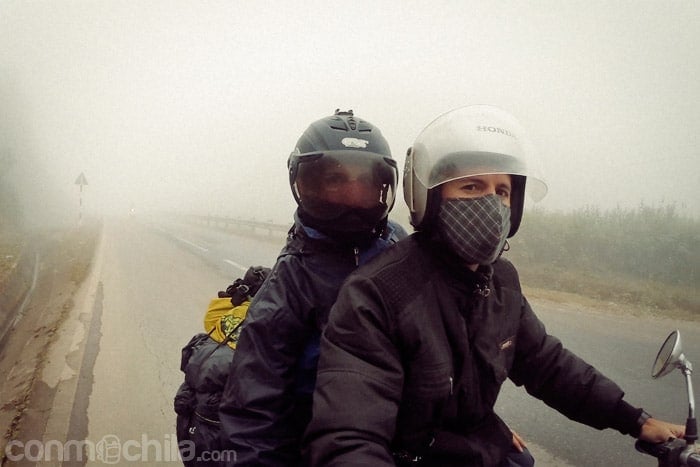
After stocking up on clothes to combat the chill, temperatures gradually warmed as we headed south, allowing us to enjoy a brief spring before being hit by the scorching summer in Ho Chi Minh and the Mekong Delta.
The bike needs constant attention: oil changes, part replacements, and inevitable flat tires.
The worst scenario? Having this happen in the one area in Vietnam where the nearest mechanic is over 10 kilometers away. You might end up being towed by a kind stranger who, pitying you as you push your bike under the 30-degree heat, stops to help.
Yes, this happened to us.
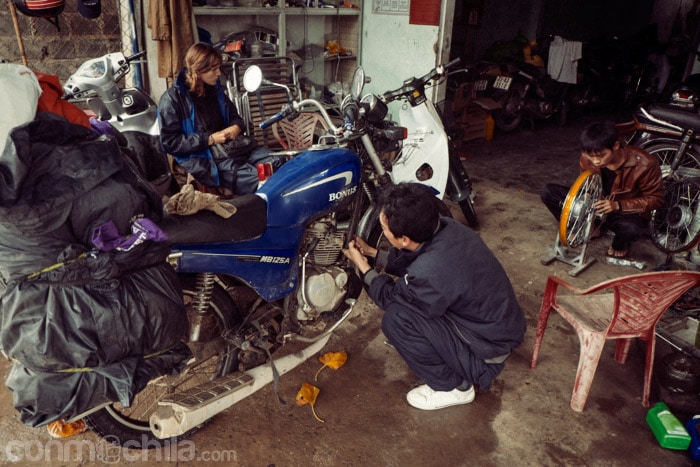
But if your luck is not so dire, Vietnamese mechanics are like guardian angels—you’ll find them everywhere. Every few meters, you’ll spot a sign reading “Sửa Xe Máy” and busy mechanics surrounded by clouds of spare parts, repairing motorbikes.
This is the main reason we decided to travel by motorbike: the freedom to choose, at any moment, what to do and where to go, bound only by the occasional whims of the bike we’ve just mentioned.
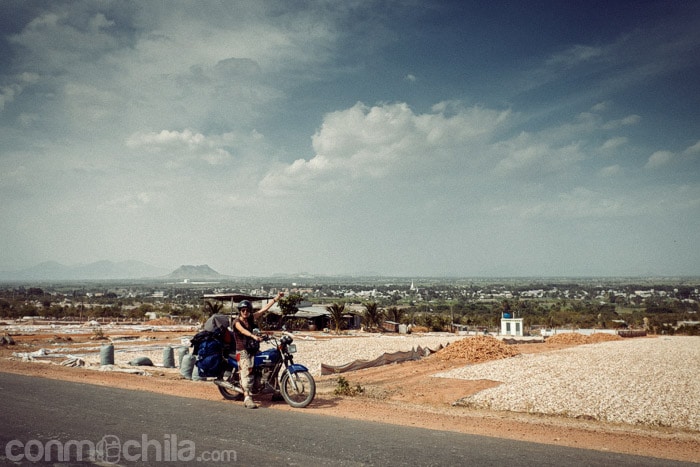
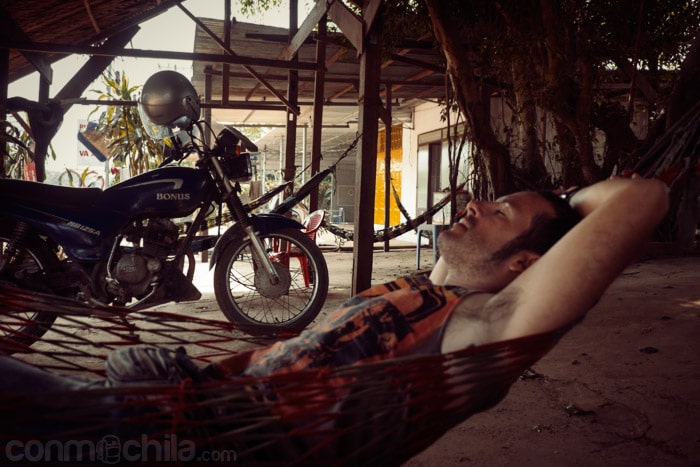
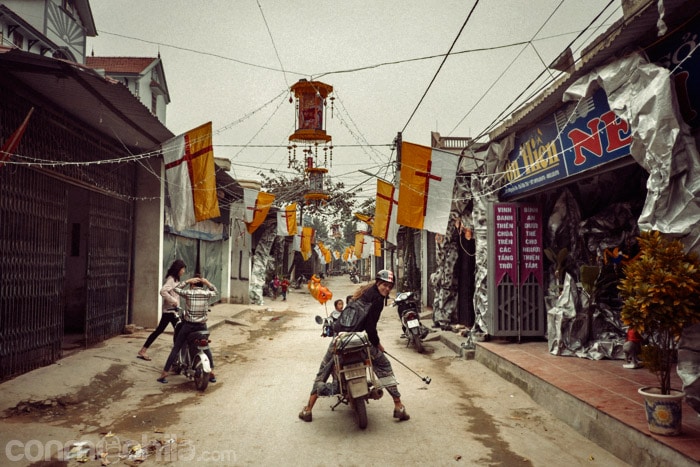
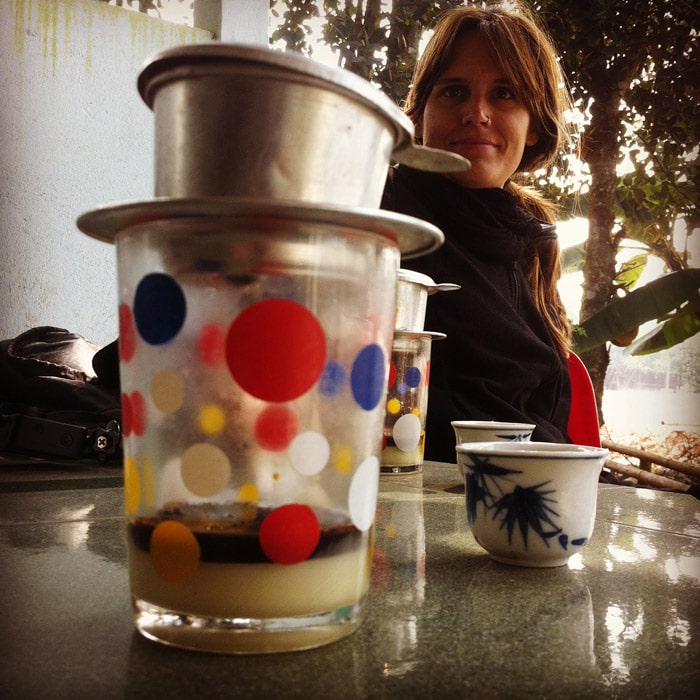
This naturally follows from the first advantage, as the freedom the motorbike gave us allowed us to explore non-touristy places, authentic cafes, and stunning landscapes. Along with these, we encountered people who defied everything we’d read about Vietnamese locals.
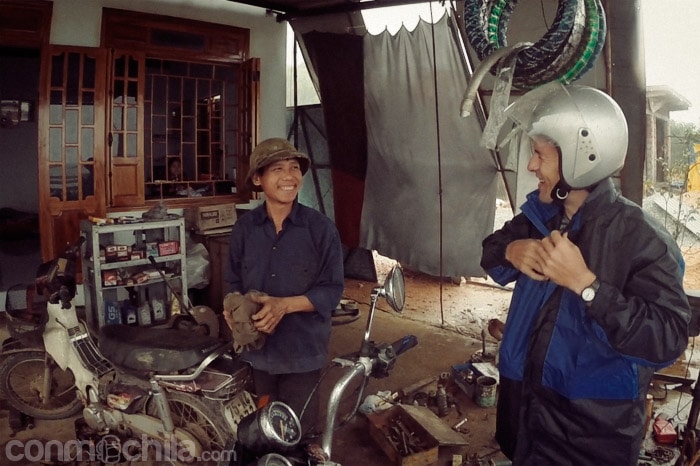
In two months of travel, I can only recall a couple of instances where someone tried to take advantage of us. In most of the lesser-known places we visited, the Vietnamese people welcomed us with kindness and curiosity, without making us feel like walking dollar signs.
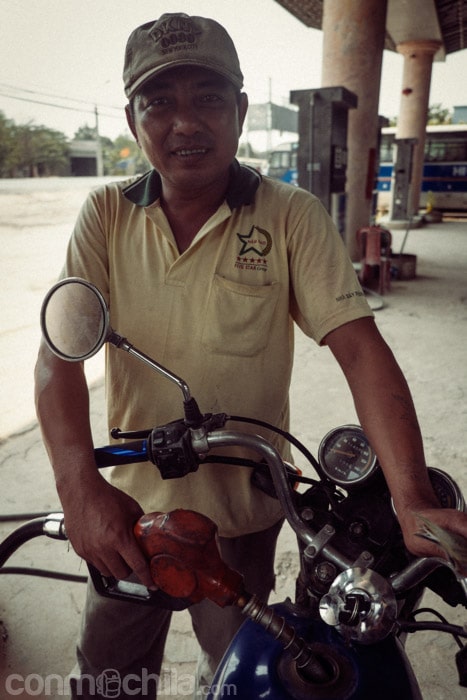
And I’m not just referring to the experience Toni has now gained as a motorcyclist, which I think could be worth a master’s degree in riding after navigating Vietnam.
It’s also about the experience we’re taking with us—each excursion, each conversation in gestures with people who don’t speak a word of English, and each memory that would undoubtedly have been different without Km0.
Even though the first list had twice as many negative points, the three words on the second list—authenticity, freedom, and experience—undoubtedly carry more weight. At least, that’s how it was for us.
Right now, we might need a few weeks before seeing a motorbike again, but yes, we would do it all over.
Would you be willing to go through the “hardships” to enjoy the rewards? We guess that depends on how each person values their freedom. For us, we haven’t regretted it for a single moment.